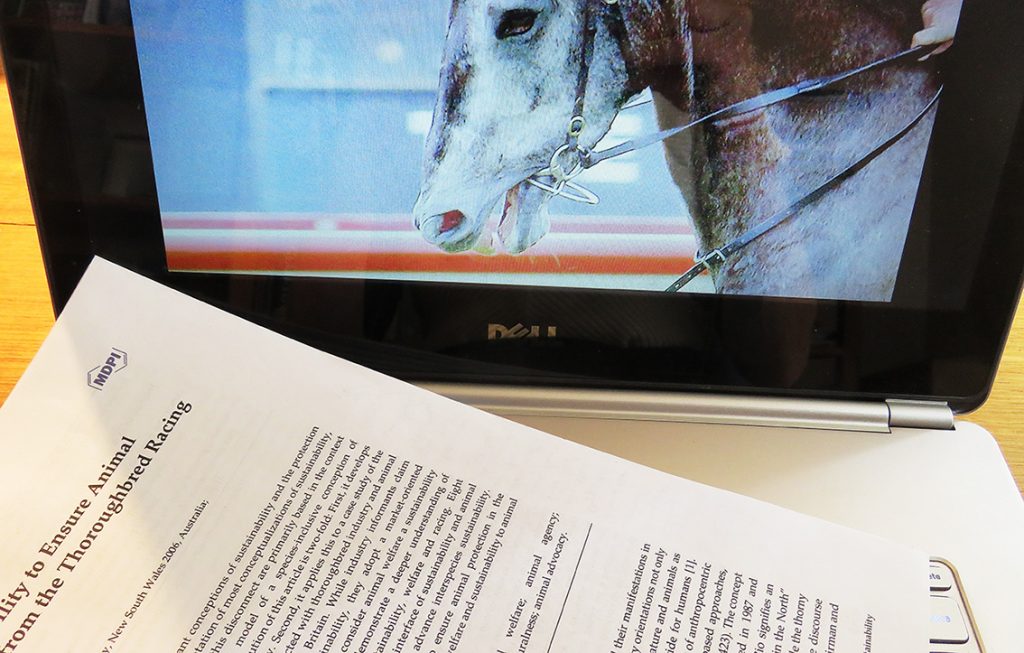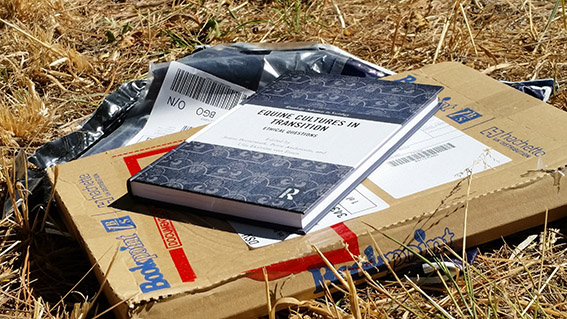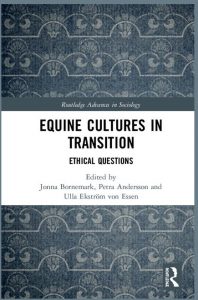
So pleased to see this published. What kept me going was the desire to give the horses in the racing industry a voice.
Bergmann, Iris M. 2019. Interspecies Sustainability to Ensure Animal Protection: Lessons from the Thoroughbred Racing Industry. Sustainability 11(19), 5539.
Abstract: There is a disconnect between dominant conceptions of sustainability and the protection of animals arising from the anthropocentric orientation of most conceptualisations of sustainability, including sustainable development. Critiques of this disconnect are primarily based in the context of industrial animal agriculture and a general model of a species-inclusive conception of sustainability has yet to emerge. The original contribution of this article is two-fold: First, it develops a theoretical framework for interspecies sustainability. Second, it applies this to a case study of the thoroughbred racing industry. Interviews were conducted with thoroughbred industry and animal advocacy informants in the US, Australia and Great Britain. While industry informants claim thoroughbred welfare is seminal for industry sustainability, they adopt a market-oriented anthropocentric conception of sustainability and do not consider animal welfare a sustainability domain in its own right. Animal advocacy informants demonstrate a deeper understanding of welfare but some express discomfort about linking sustainability, welfare and racing. Eight analytical layers have been identified in the discourse in the interface of sustainability and animal protection, of which two have transformational potential to advance interspecies sustainability. Interspecies sustainability urgently needs to be advanced to ensure animal protection in the sustainability transition, and to not leave the defining of animal welfare and sustainability to animal industries.

